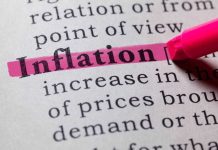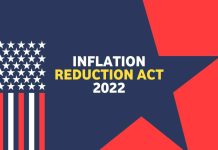
There are many motivations to refinance your mortgage. However, just because it is a reason, doesn’t mean it is a good one. In fact, there are some reasons not to get a mortgage refinance because they won’t be able to fully benefit you as a homeowner. Before getting into that, you must first understand what a mortgage refinance truly is.
Understanding Refinancing Your Mortgage
A mortgage refinance is when a borrower’s original mortgage is replaced by a new one. Typically, the new loan amount is the remaining balance of the original loan. Many homeowners may not realize that there is more than one type of refinance. Each type of refinance can benefit different homeowners for their own unique reasons.
Types of Mortgage Refinances
There are a variety of refinances available. However there are four popular options that you will typically come across. These are:
- Rate-and-Term Refinance
- Cash-Out Refinance
- Cash-In Refinance
- No-Closing-Cost Refinance
Rate-and-Term Refinance
This is what most owners think of when it comes to a typical mortgage refinance. In this option, the new loan replaces the remaining amount of the current loan. The borrower can also update the repayment terms of their new mortgage.
Cash-Out Refinance
This is a special type of mortgage refinance. Instead of the new loan amount being worth the remaining balance of the original loan, you borrow more than what is owed on your current mortgage and keep the difference. This provides homeowners the opportunity to tap into their home equity during closing.
Cash-In Refinance
A cash-in refinance can provide the homeowner an opportunity to improve their LTV. At the time of closing, the borrower can provide more funds to the lender to reduce the overall mortgage amount.
No-Closing-Cost Refinance
Sometimes lenders may advertise refinance options that don’t have any closing costs. However, that isn’t entirely true. They just find other ways to deal with the closing costs. They may choose to roll them into the overall loan amount, while others may offer a higher interest rate with restricted loan terms in exchange for no closing costs.
Why You Should Not Refinance Your Home
Each homeowner’s situation is different. That is why there are countless reasons that a home refinance may not make sense. This can help avoid making mistakes, especially when it comes to your finances.
Your Break Even Point Doesn’t Make Sense
What is your break even point? Well it is the point at which the savings from the refinance will be more than the closing costs. There are free tools online that can help you calculate this point or you can do it yourself with some simple math. For example, if the total amount of your closing costs was $7,000 and you see a monthly savings of $100 a month then 7,000 ÷ 100 = 70. That 70 represents the number of months that it will take to break even which is a little less than 6 years. If you plan on leaving your house in less than 5 years then it may not make sense to get a mortgage refinance. The overall spent will be more than the overall saved until that point in time.
The Updated Loan Terms Cost You More in the End
Since there are a variety of refinancing options, not every one may be a good fit for your current financial situation. For example, if your original mortgage was a 30-year loan term and after 14 years you refinance it again with a 30-year loan term then you end up paying more in interest over that time. However, even though you may deal with more interest over the life of the loan, you may be able to better manage your current financial situation with a lower monthly payment when you lengthen your loan during refinance. You just need to be aware that there are situations where you could end up spending more than what you save!
Your Interest Rate
It is important to look at your interest rate when deciding if a mortgage refinance can be beneficial. There may be better times to refinance like if you currently have an adjustable-rate mortgage (ARM) and switch to a fixed-rate while interest rates drop by at least 1%. That can be more beneficial than already having a fixed-rate and refinancing with just a .25% lower interest rate. Your break even will play an important role in deciding if it is worth it but patience is a virtue and you may want to hold off.
Closing Costs are Too Much
You can expect your closing costs to be worth between 2% to 6% of your loan amount. Depending on the type of refinance you choose, you may need to pay those costs during closing. This can be hard for people to afford upfront. If you find that you put your finances in jeopardy with closing costs that are too much then it may not be the right time.
Your Credit Score Needs Some Improvement
Your credit is constantly changing. There are plenty of factors that can have an impact. If you try to refinance your mortgage when your credit score has decreased since you got your first mortgage, you may have higher interest rates and spend more money. In fact, your low credit score can also negatively impact how lenders look at your debt-to-income (DTI) ratio or be so low that lenders may not even approve you for a traditional refinance.
You Cannot Afford an Increased Monthly Payment
Depending on the mortgage refinance, you may face a higher monthly payment (but an overall shorter loan term!). Regardless of how the refinance causes a higher monthly payment, it may not be manageable for your budget. You need to make sure you stay within your financial means to avoid defaulting on your home.
Why You Should Refinance Your Mortgage
Just as there are reasons that you should avoid a mortgage refinance, there are times where a mortgage refinance can make sense. There are plenty of reasons that you should consider refinancing a mortgage.
Update Your Interest Rate
When you get a mortgage refinance, there are a couple of ways that your interest rate can change. One way is if you change your ARM to a fixed-rate mortgage. When you have an adjustable rate, it can be difficult to budget for. When you lock in a fixed-rate for your mortgage, then you could save money compared to the setup of your original mortgage. You may also be able to benefit from just lower mortgage rates. An improved credit score, lower mortgage rates, and more can result in less interest over the course of the loan.
Reduce the Length of Your Loan
A mortgage refinance provides the perfect opportunity for homeowners to shorten their loan term. This can shave years off of the repayment of your loan. For example, if your original mortgage was a 30 year-term and you refinance after 8 years for a 15-year term then you save years of overall loan repayment time.
Get Cash Out of Your Home
Depending on the type of refinance, a homeowner may be able to tap into their home’s equity. When the new mortgage is worth more than what is owed and not just the remaining balance of the original loan, then homeowners will receive those funds during closing. The funds can be used towards anything whether personal expenses, home improvements, unexpected accidents, debt consolidation, and more. Lenders will usually set limits to prevent the homeowner from tapping into all of their equity but it depends on the financial institution. This can be a great option to consider when you are in need of a lot of money.
How to Prepare for a Mortgage Refinance
If you are still interested in getting a mortgage refinance, then there are a few things that you can do to properly prepare. Preparation is a key component in seeing a successful refinance!
Why Do You Want to Refinance
Make sure to understand your reasoning for wanting a refinance. Now that you understand some reasons not to refinance, you want to make sure that your motivation makes sense. When you understand your reasoning you can also better pick a refinance for your situation. For example if you want to save money then a rate-and-term refinance would likely be the best option.
Find Your Break Even Point
We mentioned this earlier but we want to repeat: Find your break even point! This can show you how long it will take to actually see the full benefits from your mortgage refinance. Components of your break even point will also be able to show if your refinance can help you achieve your goals.
Improve Your Finances
There are ways that you can improve your finances before you get a mortgage refinance. These include:
- Establishing a Savings Account
- Improving Your Credit
Establish a Savings Account
One important way to improve your financial situation is to establish a savings account for your closing costs and other refinance expenses. Since you can expect to pay thousands of dollars at the time of closing, preparing for that cost can put you in a better position. Some other refinance expenses that a savings account can benefit are the funds for a cash-in refinance. If you know that you want to provide more money at the time of closing then you can prepare for those funds to be given.
Improve Your Credit
A big factor in the mortgage refinance process is your credit score. You can work on building your credit by making on time payments, keeping your credit utilization low, having a low DTI, ensuring there are not many hard inquiries, and more can help. Your credit report is accessible for free online once a year or is able to be requested through a credit reporting bureau.
Get Your Paperwork Ready
While every financial institution and refinance is different when it comes to the paperwork that will be required, there are some documents that you can prepare. Having your documentation ready can make the process go faster since the wait time on your end is reduced. Some paperwork that may be good to have handy is:
- Personal Tax Returns
- Business Tax Returns (If Applicable)
- Tax Documents like a W-2 or 1099
- Bank Statements
- Other Financial Documentation (Like Child Support, Alimony, Etc.)
Make Sure Your Home is Ready
Depending on the type of mortgage refinance you choose, you will likely need to get a home appraisal. A home appraisal is done by a professional appraiser and is done to determine the actual market value of your home. Making sure your house is clean, the curb appeal is attractive, and more can boost the overall value of your home in time for the appraisal.
Overall
A mortgage refinance can make sense to some homeowners, but not all. You want to make sure you understand why not to refinance your home to try and avoid any financial mistakes. There are also reasons that it can be beneficial to refinance a mortgage. If you want to get a mortgage refinance, you can improve your financial situation and prepare to make the process easier. Regardless of your decision, it can also be beneficial to speak to a financial professional to get insight on what would be a good path to pursue. Take your time, and make sure that you don’t rush into a refinance if the time isn’t right!
Commonly Asked Questions
Check out some of these commonly asked questions that may be able to provide you more information:
Can You Walk Away from a Mortgage Refinance?
A benefit of the refinance process is that you have time to walk away. In fact, when refinancing a mortgage, you have until midnight the third business day after to cancel the contract. The process of cancelling is known as rescinding. Be mindful of this deadline when making your decision!
Why Would a Lender Want You to Refinance?
You may have seen promotional deals by a financial institution encouraging homeowners to refinance. However, why would a lender want you to refinance? There are actually a bunch of reasons that a lender could push for a refinance. Some of these reasons are:
- To open a new mortgage at the financial institution.
- Get commission for the agent that works on the refinance.
- Make money overall.
What are Reasons Not to Refinance?
To sum up the reasons not to refinance (as mentioned above):
- Your Break Even Point Doesn’t Make Sense
- You Spend More with Your Updated Loan Terms
- The Interest Rate
- Closing Costs are Too Much
- Your Finances Need Improvement
Article Resources
https://www.bankrate.com/calculators/mortgages/mortgage-refinance-break-even-calculator.aspx
https://www.lendingtree.com/home/refinance/mortgage-refinance-closing-costs/




























